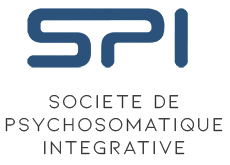Medicine
The point of view of Dr Bernard-François Derreumaux, Gynecologist, Psychosomatician.
Known since antiquity without having been identified, Endometriosis has attracted the interest of the medical profession for a few years, as it affects at least 10% of the world's population, but it still does not benefit from a specific and truly effective treatment.
If the recent recommendations of the HAS (December 2017) have clarified and simplified the therapeutic orientations, the mediatization of the personal experience of some artists has allowed the voices of the associations of concerned patients to be heard and to start taking into account their personal experiences.
Nevertheless, therapeutic progress has not yet made it possible to eradicate this condition, the evolution of which can be disconcerting for the medical profession and patients. Indeed, this pathology is full of paradoxes that are difficult to manage:
-
There is no parallelism between the size, number, and severity of endometriosis sites. A small lesion may be intensely more painful than multiple disseminated and invasive lesions; and vice versa.
-
Regardless of the treatments applied (medical and/or surgical), relapses are very frequent (over 50%).
-
Progressive flare-ups can be observed even under well-controlled treatment, often synchronized with emotional events.
-
A particular frequency of autoimmune diseases is often observed after the age of 50.
-
Classically observed between puberty and menopause, this pathology can sometimes be suspected as soon as the first menstrual period occurs and sometimes well after their definitive cessation.
In reality, there is no well-established "rule" for this condition and all these facts encourage the greatest medical caution and reconsideration of therapeutic strategies.
Are the real causes of this condition being treated?
What do these pains and dysfertility really mean? Are they only physical?
The following case study may help to provide a more dynamic and integrative reading of the medical history of women with Endometriosis.
Dr Christian Delourmel
Revue Française de Psychosomatique n°45/ 2014 p ;41 à 75.
Affect and drives in medicine and psychosomatics: clinical, theoretical and epistemological issues
The passage from medicine to psychosomatics is a path strewn with "epistemological obstacles" (Bachelard, 1938), whose complexity and difficulty reflect the complexity and vagaries of conceptions of the psyche-soma relationship.
This complexity and difficulty underlying the relationship between medicine and psychosomatics is redoubled within the field of psychosomatics by the impact of conceptions of the psyche-soma relationship in the diversity of psychoanalytical models of psychosomatics (Smadja, 2008). This path, which aims at "transforming, in the observer's thinking, a duality of heterogeneous phenomena in the patient, belonging to different fields of functioning (psychic functioning and somatic functioning) into a unicity of conception" (Smadja), requires the prerequisite of an open dialogue between psychoanalysis and medicine, but also within psychoanalysis itself.
The fruitfulness of this dialogue depends on the recognition of and respect for the heterogeneity and specificity of each of these fields of knowledge of life, both on the theoretical and practical levels. The outcome of this dialogue must integrate the irreversible achievements of contemporary Western medicine, and not deny them, if it is to respect the high level of complexity that constitutes the psychosomatic phenomenon.
In this article, I propose to revive, in the light of the psychoanalyst that I have become, clinical, theoretical and epistemological reflections that I had carried out from a medical point of view, based on questions that arose in my practice of general medicine (Delourmel, 1984). The passage from a medical practice to an analytical practice requires a renunciation because of the specificity of each of these practices.
But the work of mourning required with regard to medical practice by the choice of analytic practice is not a denial of medicine nor of a practice whose traces constitute a treasure of human experience. I hope to bring useful elements, because of my medical and psychoanalytical training, and the teaching that I have drawn from the questions raised during my long-standing practice of general medicine, to the opening of a dialogue between doctors and psychoanalysts, which is a major public health issue.
This dialogue too often remains a dialogue of the deaf: in fact, it places non-psychoanalyst physicians and non-psychoanalysts before the same difficulty: the confrontation with forms of thought and knowledge that are foreign to them. This confrontation requires a mutual effort to enter into the other's thinking.
To introduce these questions, I will briefly report a case of a patient who illustrates the daily life of a general practitioner.
